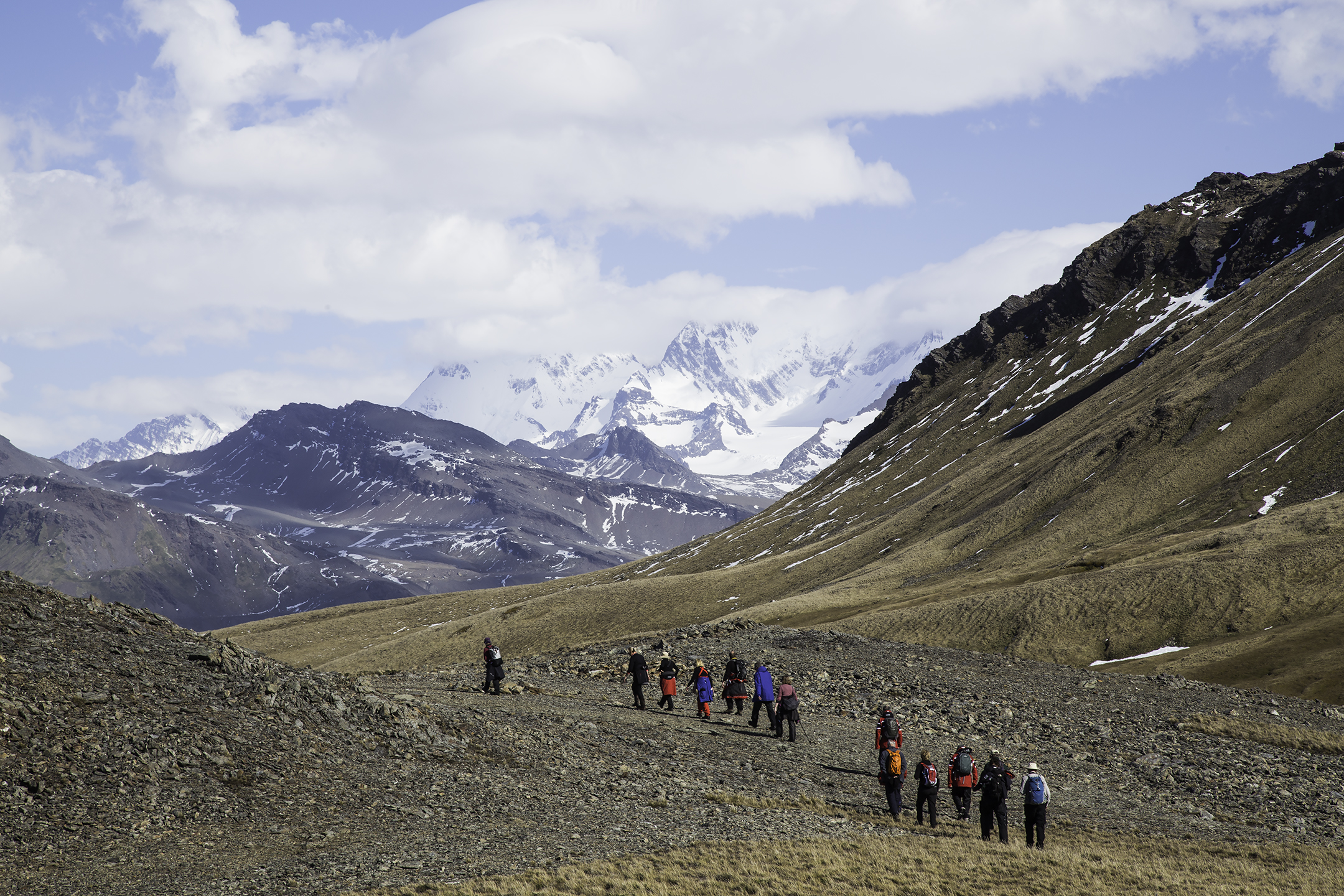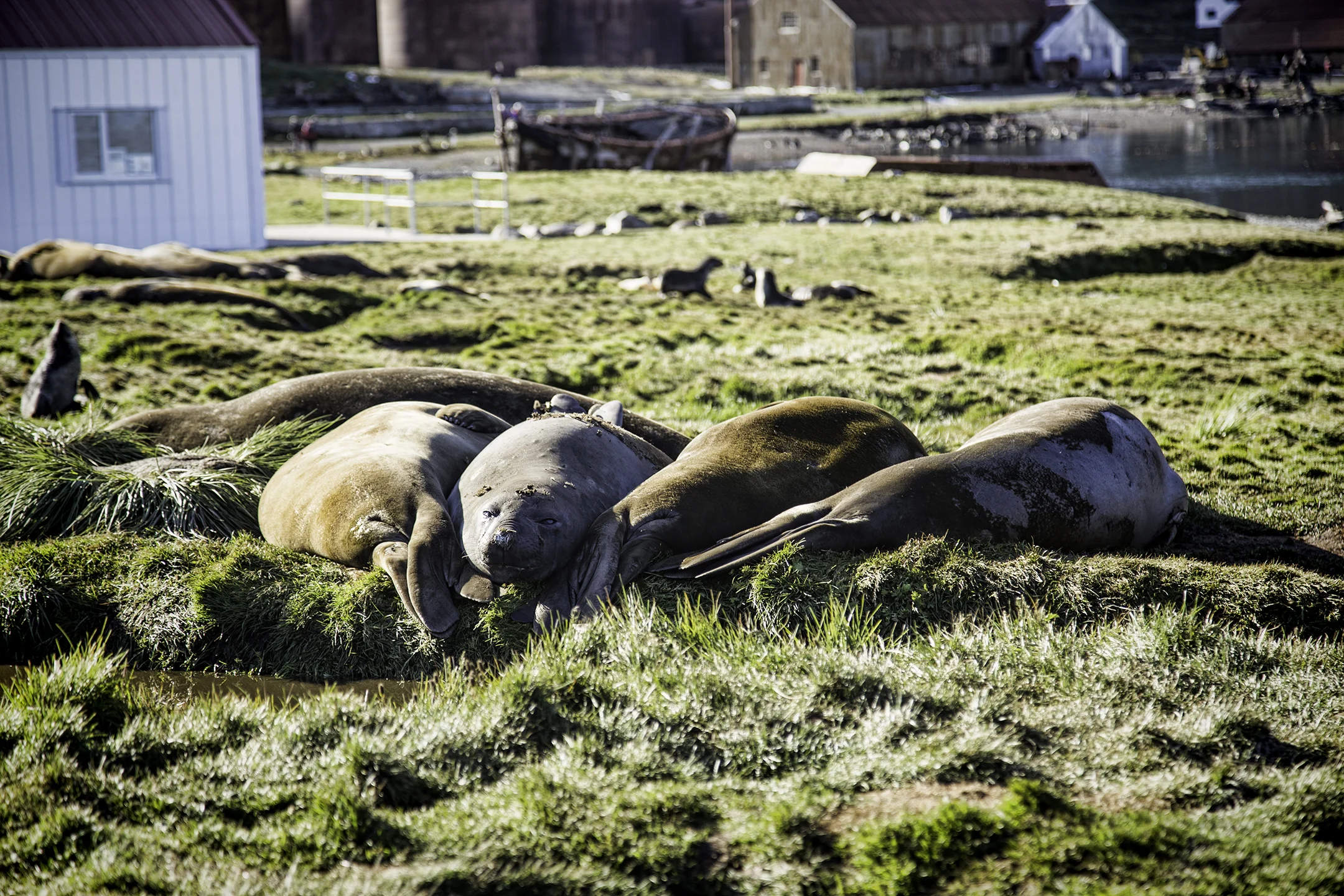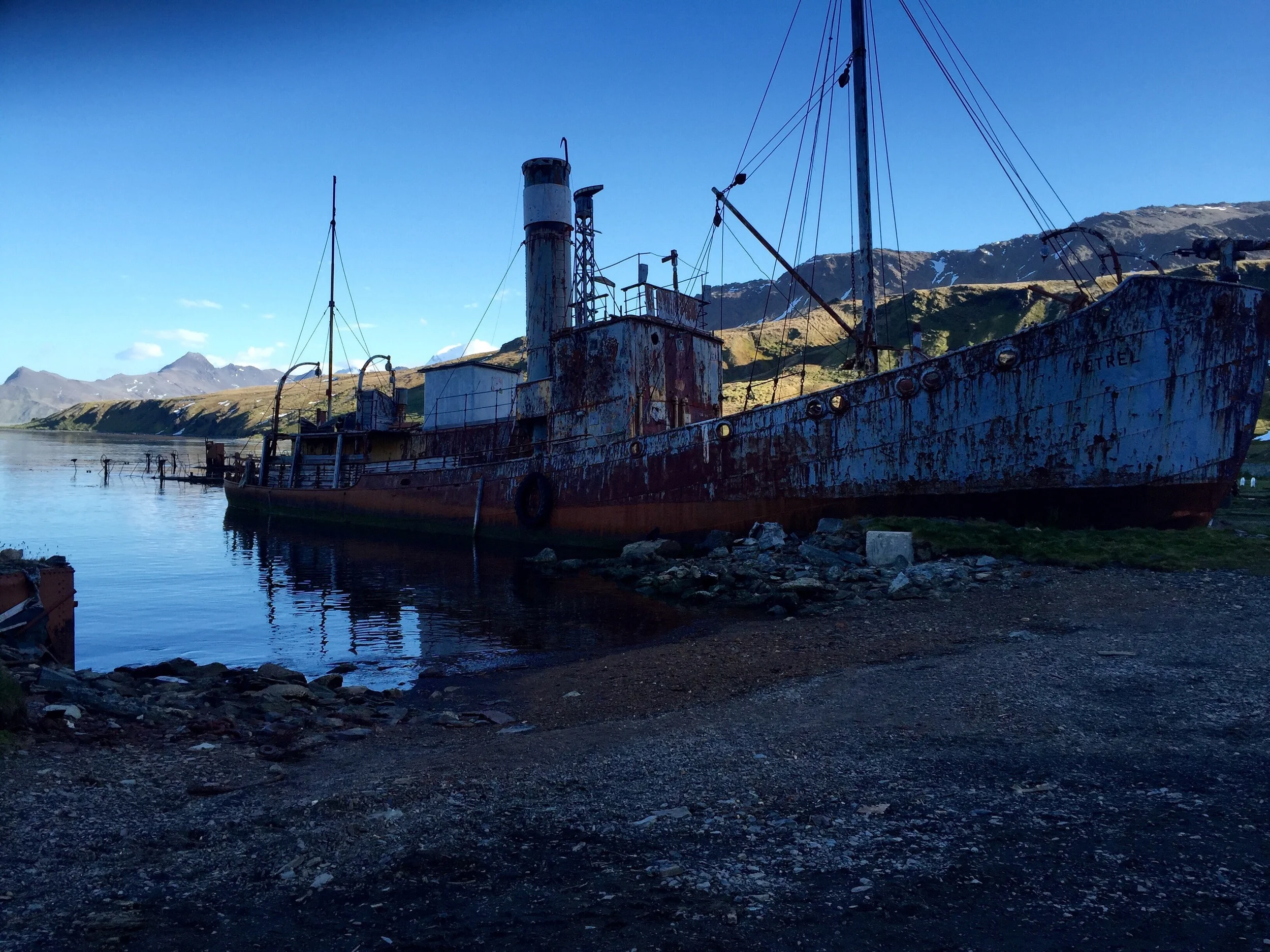This afternoon we are fortunate enough to visit Grytviken on a sunny day. Under blue skies with relatively warm temperatures, landfall is made. This allows us to pay a call to the cemetery where Sir Ernest Shackleton is buried, hike up a mountain trail with vistas of the bay, and tour the remnants of this whaling town.
Grytviken, Swedish for the Pot Bay, is a settlement on South Georgia Island where old English "try pots" were initially used to render seal oil. Located within King Edward Cove, this harbor is well sheltered and has flat land that made it suitable for the shipbuilding and whaling industries that were important in the early 20th century.
Founded in 1904 by the Norwegian sea captain, Carl Anton Larsen, Grytviken captured and processed 195 whales in its first season alone. The blubber, meat, bones and viscera were utilized for the extraction of oil, with some elements converted into fertilizer or fodder. Every few months a transport ship would deliver essential supplies to the station and would then load up with barrels of oil and other whale products for distribution.
Our first stop is to pay a visit to the grave of Sir Ernest Shackleton. Known to posterity as The Boss, he was a Brit from the heroic age of Antarctic exploration who, in 1915, during an expedition on his ship, the Endurance, became stranded on Elephant Island, the gateway to Antarctica. After waiting out the winter until the pack ice began melting, Shackleton and 4 of his men paddled a lifeboat through 800 miles of treacherous Southern Ocean waters to South Georgia Island, leaving 22 of his crew to continue braving the elements on Elephant Island. Having made contact with a whaling ship, they returned after 4.5 months to find his entire party alive. Shackleton never made it to the South Pole, his intended destination, but his courage and determination made him an icon of Antarctic Exploration. With this history in mind, Irish whiskey is distributed to everyone present, and a toast to The Boss is made.
We proceed to hike up a mountain trail that provides us with excellent vistas of King Edward's point. I'll have to admit that I underestimated how warm I would get on this trek. Peeling off and carrying layers of clothing, together with my camera bag, I start to imagine how Sherpas feel scaling the Himalayas. While ascending this precipice, our guide, trained as a geologist, explains to us how many of the rocks we are seeing are comparable to what is present in the Lower Cretaceous Yahgan Formation of the Beagle Channel in the southernmost region of South America.
After completing our mountain climbing expedition, we descend into the village of Grytviken. I break off from the group to tour by myself, noting that the sun is getting lower in the sky, perfect for photography!
While phenomenally successful as a whaling station from its start, the whale stocks became so low that their continued exploitation became unviable. This base of operations closed in 1966, leaving behind whale bones and the rusting remains of whale oil processing plants and abandoned ships. Serviced by 300 men during its peak enterprise, it becomes easy for me to imagine how profitable this port must have been in its heyday.
As I make my way into town, I come face to face with a group of elephant seals that have been napping. These are earless beasts that were hunted to the brink of extinction by the latter part of the 19th century. Fortunately, their numbers have since recovered. What I see today are members of the genus Mirounga. This genus has 2 species, known as the northern and southern elephant seals. The southern elephant seals are larger than their northern relatives. They appear to be quite comfortable taking a nap as the afternoon sun gets lower in the sky.
As our time in Grytviken is waning, I meander through the town on the way back to our zodiacs. Deserted whaling ships that bespeak what was once a vibrant and productive industrial area are strewn throughout the abandoned harbor. The feeling of walking through an outdoor museum is very compelling.
We board our zodiacs to return to the Sea Explorer. Grytviken has really transported me back in time to an age and culture that are very foreign to me. What a gem in the Southern Ocean!






